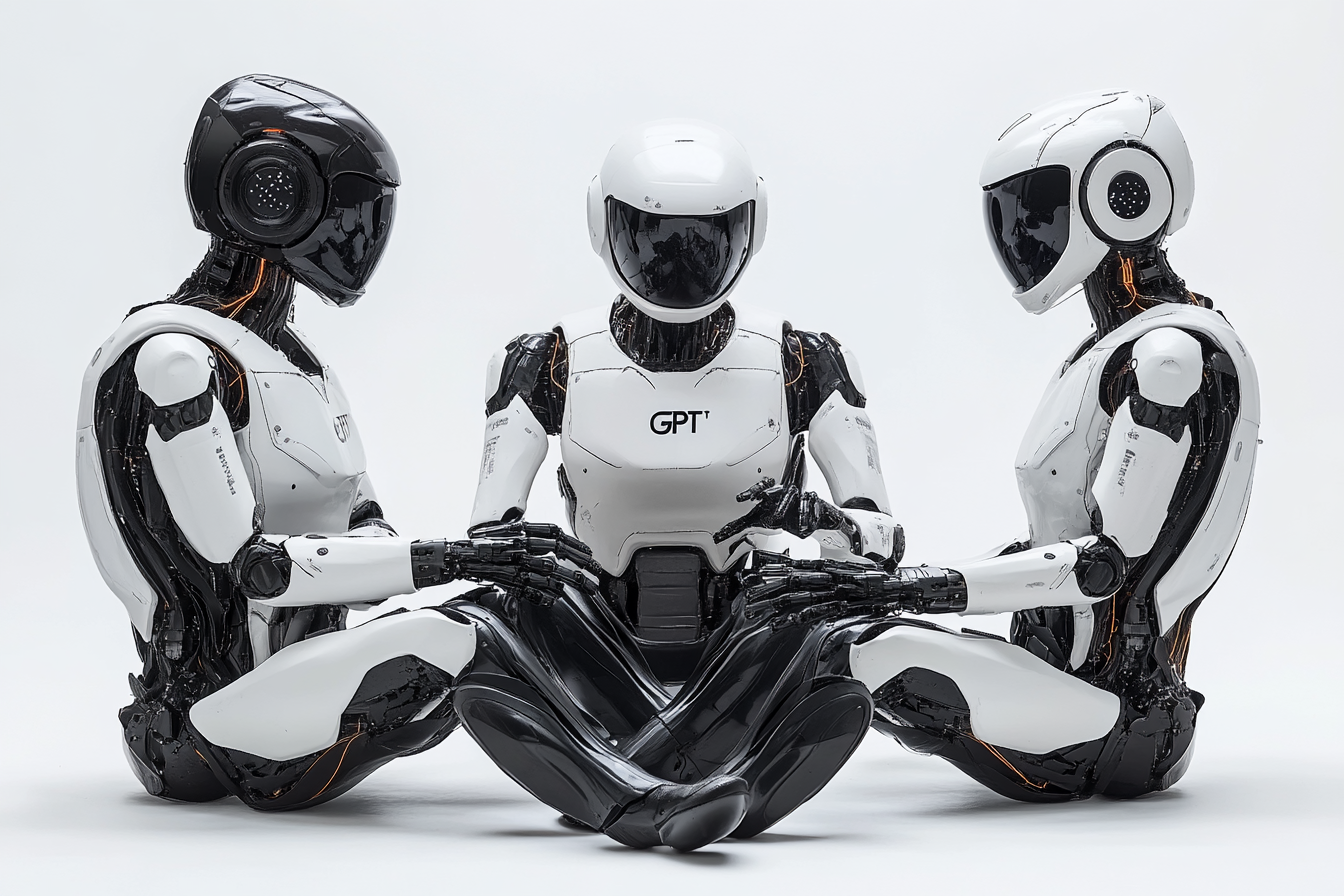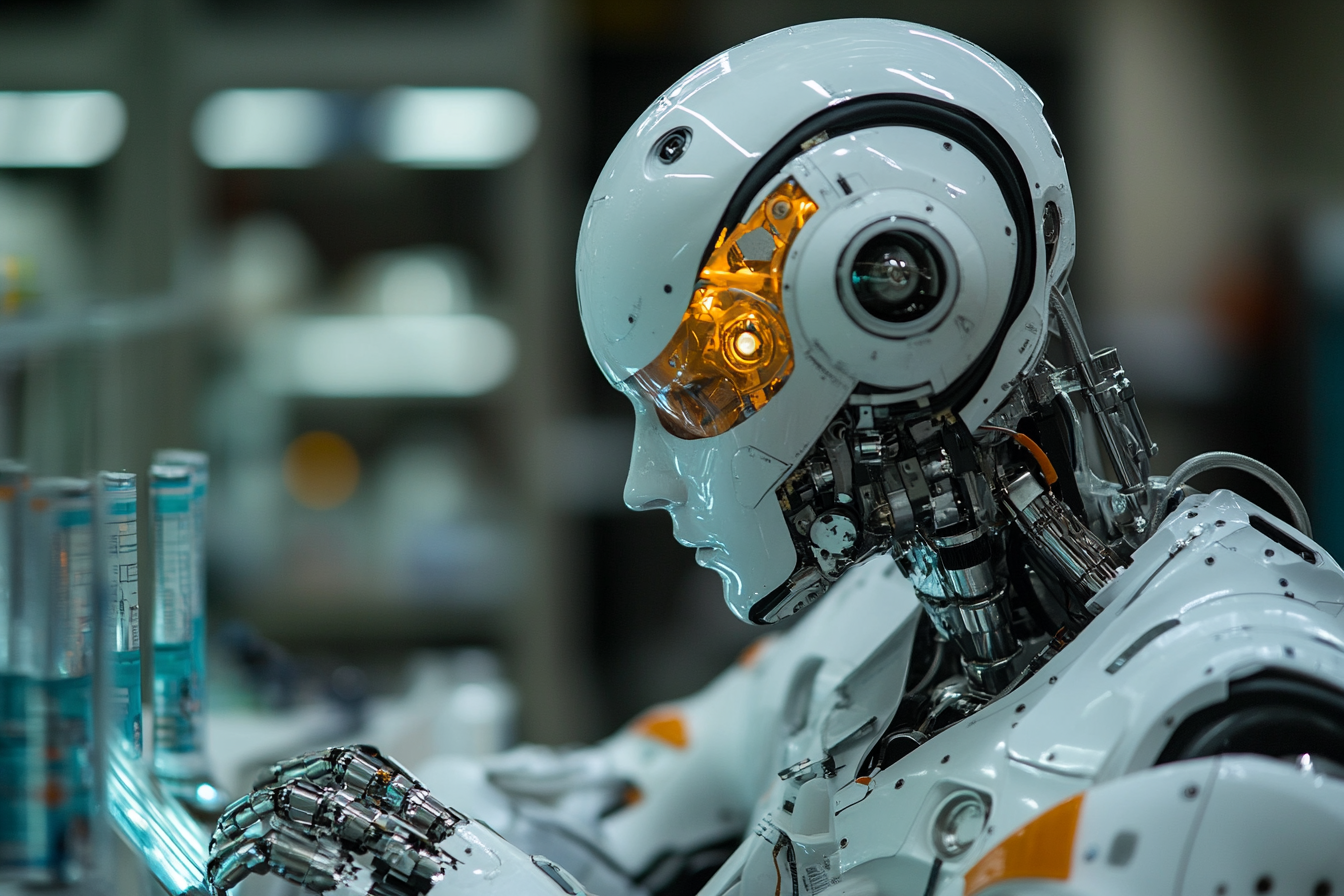The Rise of AI Assistants on Flights
Imagine a world where your flight experience is seamlessly orchestrated by intelligent assistants, from personalized entertainment to optimized routes that minimize delays.
This is the promise of artificial intelligence (AI) in aviation, a rapidly evolving field that is transforming the way we fly. AI is already making significant strides in enhancing efficiency, safety, and the overall passenger experience, and its influence is only expected to grow in the years to come.
Let’s explore how AI assistants are changing the skies and what the future holds for this exciting technology.
Listen to Podcast
AI Assistants in Current Flight Operations
AI is already a silent partner in many aspects of flight operations, working diligently behind the scenes to improve efficiency and streamline processes. Here are some key examples:
- Customer Service: AI-powered chatbots are becoming increasingly common in the airline industry, providing passengers with instant answers to common questions about flight schedules, baggage allowances, and other travel-related inquiries. These chatbots can be accessed through airline websites, mobile apps, or even social media platforms, offering 24/7 support and freeing up human agents to handle more complex issues. Some airlines are even using AI to streamline the check-in and boarding process, using facial recognition and biometric systems to speed up identity verification and enhance security.
- Flight Planning and Operations: AI is being used to optimize flight routes, taking into account factors such as weather conditions, air traffic congestion, and fuel efficiency. This can help airlines save money on fuel costs and reduce flight times, leading to a more efficient and sustainable operation. AI is also being used to improve air traffic control systems, helping to prevent delays and ensure the safe and efficient flow of air traffic. In fact, AI assistants can be deployed on a variety of platforms, including mobile apps, kiosks, and websites, ensuring that passengers can access information and assistance wherever they are.
- Predictive Maintenance: AI algorithms can analyze data from aircraft sensors and maintenance records to predict potential maintenance issues before they occur. This allows airlines to proactively address potential problems, reducing the risk of delays and cancellations due to unexpected maintenance needs. This not only improves safety but also helps airlines save money by avoiding costly repairs and downtime. Notably, AI-powered predictive maintenance is playing a crucial role in reducing flight delays by identifying and addressing potential issues before they become critical.
The Future of AI Assistants on Flights
While AI is already making a difference in air travel, the future holds even more exciting possibilities. Here are some potential applications of AI that could further transform the flying experience:
- Personalized In-Flight Entertainment: Imagine settling into your seat and being greeted by an in-flight entertainment system that already knows your preferences. AI could make this a reality by analyzing your past viewing habits and providing personalized recommendations for movies, TV shows, and music tailored to your tastes. AI could also be used to create interactive in-flight entertainment experiences, such as virtual reality tours or personalized games, making your journey even more immersive and enjoyable.
- AI-Powered Robots for Cabin Service: In the future, robots could assist flight attendants with tasks such as serving meals and drinks, providing blankets and pillows, and answering passenger questions. This could free up flight attendants to focus on more complex tasks and provide a more personalized service to passengers. Imagine a robot efficiently navigating the aisle, offering refreshments and ensuring your comfort throughout the flight.
- Enhanced Safety Features: AI could be used to develop even more sophisticated safety systems for aircraft, such as systems that can detect and prevent potential collisions or systems that can automatically land an aircraft in an emergency. AI could also be used to monitor passenger behaviour and identify potential security threats, further enhancing the safety and security of air travel.
- AI-Driven Virtual Reality Experiences: AI has the potential to take in-flight entertainment to the next level by enhancing virtual reality (VR) experiences. Imagine exploring exotic destinations or embarking on thrilling adventures from the comfort of your seat, all thanks to AI-powered VR technology.
The growing importance of AI in the aviation industry is undeniable. Over 60% of airlines are planning major AI programs in the next three years, signalling a significant shift towards embracing this transformative technology.
Benefits of AI Assistance on Flights
The rise of AI assistants on flights offers numerous benefits for both airlines and passengers:
- Improved Efficiency: AI can help airlines optimize operations, reduce costs, and improve on-time performance. This can lead to lower fares and a more efficient travel experience for passengers. AI can automate processes like baggage handling, check-in counters, ticketing, and boarding, simplifying operations and reducing the time passengers spend at airports. AI also plays a crucial role in crew scheduling, ensuring that the right crew members with the necessary skills and experience are available for each flight, further minimizing delays and enhancing the travel experience.
- Enhanced Safety: AI can help prevent accidents, identify maintenance needs, and improve the overall safety of air travel.
- Improved Passenger Experience: AI can personalize the travel experience, provide more efficient customer service, and offer more entertaining and engaging in-flight options.
Public Perception of AI Assistants
Public attitudes towards AI in aviation are evolving. While many passengers are excited about the potential benefits, such as personalized entertainment and increased efficiency, some express concerns about safety and the implications of relying on AI for critical tasks.
Studies have shown that a significant portion of travellers believe AI will profoundly change their daily lives, including their travel experiences. However, there is also a degree of apprehension and a desire for transparency regarding how AI is being used in aviation.
Ethical Considerations
As AI becomes more prevalent in aviation, it’s crucial to address the ethical considerations that arise.
- Data Privacy: AI systems rely on vast amounts of data, raising concerns about the privacy and security of passenger information. Airlines need to ensure that they are collecting and using data responsibly and transparently, obtaining explicit consent from individuals before collecting and using their data.
- Transparency and Accountability: AI systems can raise questions around transparency and accountability when decisions are made by them. It may be difficult to understand how an AI system arrived at a decision and who is responsible for it. Companies must ensure that their AI systems are transparent, explainable, and auditable, and that there are clear processes in place for accountability and dispute resolution.
Challenges of AI Assistance on Flights
While the potential benefits of AI in aviation are significant, there are also challenges that need to be addressed:
- Data Privacy Concerns: AI systems rely on vast amounts of data, raising concerns about the privacy and security of passenger information. Airlines need to ensure that they are collecting and using data responsibly and transparently.
- The Need for Human Oversight: While AI can automate many tasks, it is important to maintain human oversight to ensure that AI systems are functioning properly and making sound decisions.
- Potential for Job Displacement: As AI takes on more tasks, there is a concern that it could lead to job losses in the aviation industry. For example, AI-powered robots could potentially replace some tasks currently performed by flight attendants. Airlines and policymakers need to consider the potential impact on workers and develop strategies to mitigate any negative effects.
Conclusion
The rise of AI assistants on flights is revolutionizing the aviation industry, offering a multitude of benefits for both airlines and passengers. From personalized in-flight entertainment to enhanced safety features and increased efficiency, AI is transforming the way we travel. While challenges such as data privacy concerns and the potential for job displacement need to be addressed, the future of AI in aviation is undeniably bright.
As AI technology continues to evolve, we can anticipate even more innovative applications that will further enhance the flying experience. This includes the potential for increased automation, the evolving role of humans in aviation, and the need for ongoing dialogue and collaboration to ensure responsible AI implementation. The journey towards fully integrating AI into aviation is an ongoing one, but the possibilities are truly exciting.














